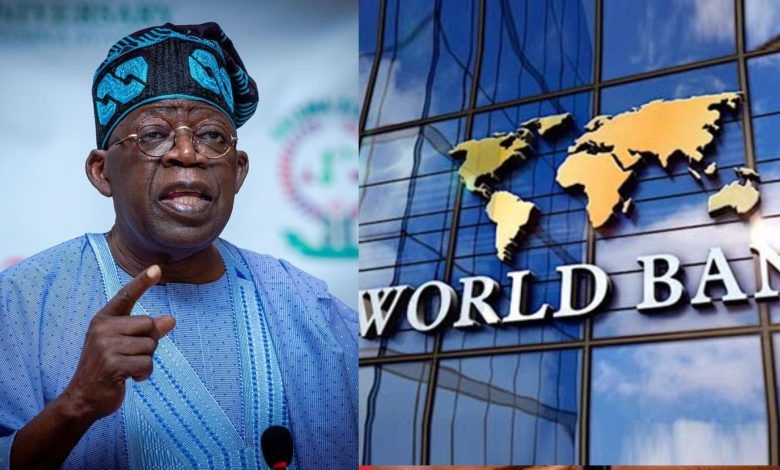Latest report by the World Bank has revealed that Nigeria’s poverty rate has galloped ahead as the country is now home to 15% of the world’s poorest people, representing 19% of Sub-Saharan Africa’s extremely poor population.
According to the World Bank’s latest Africa’s Pulse report, Nigeria’s poverty rate is an indication of a “deepening poverty crisis” in Africa’s most populous nation under President Bola Tinubu.
The report released during the IMF and World Bank Spring Meetings in Washington, DC, also revealed that Sub-Saharan Africa accounts for 80% of the world’s 695 million extremely poor in 2024.
This means that out of the 695 million poor people in Africa, Nigeria alone hosts over 106 million people living on less than $2.15 per day.
This also translates to more than one in seven of the globe’s poorest residing in Nigeria.
Additionally, the report projected a grim outlook, with Nigeria’s poverty rate expected to rise by 3.6% by 2027.
The report listed factors such as reliance on oil exports, economic fragility and governance challenges, insecurity and conflict as the reasons Nigeria’s poverty rate could rise in the future.
Despite recent growth in Nigeria’s non-oil sector in Q4 2024, the World Bank warns that fiscal and institutional barriers prevent this progress from translating into widespread poverty reduction.
World Bank also stated that beyond monetary poverty, millions of Nigerians face multidimensional poverty, lacking access to healthcare, education, clean water, electricity, and safe housing.
The World Bank noted that over 50% of Nigerians are multidimensionally poor, with many relying on dung, wood, or charcoal for cooking, which poses health and environmental risks.
Nigeria is not alone in its struggle. Other Sub-Saharan African countries with high concentrations of extreme poverty include the Democratic Republic of Congo (14%), Ethiopia (9%), and Sudan (6%). Together with Nigeria, these four countries host half of sub-Saharan Africa’s poor.
“Sub-Saharan Africa has the highest extreme poverty rate globally, and the large share of the poor is concentrated in a few countries,” the World Bank noted.





